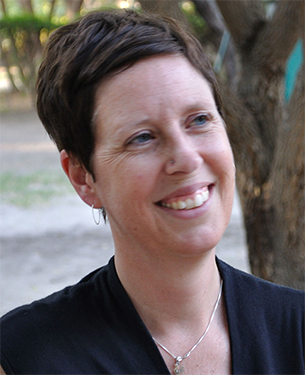Faculty of Environmental & Urban Change (EUC) Dean Alice Hovorka talks about creating opportunities for students to become changemakers as the future of work evolves to focus on “green” jobs.
When it comes to future job opportunities for students, GREEN is the new black.

Climate action commitments by national governments and international organizations come with increased investments to achieve climate resiliency and demand for millions of new jobs over the next decade.
Openings for ”green jobs” related to the environment will increase by 17 per cent over the next three years according to labour market research from Environmental Careers Organization (ECO) Canada. Globally, the shift to a greener economy could create 24 million new jobs around the world by 2030 according to the International Labour Organization (ILO). The push for net zero transitions has ignited dedicated sustainability and ESG streams in public, private, not-for-profit and civil society sectors; new jobs are emerging in sectors not traditionally thought of as “green.” Notably, equity-based solutions and “just climate resilience” are important parts of these trends.
According to Smart Prosperity Institute’s 2022 report on Job and Skills in the Transition to a Net-Zero Economy, Canada’s workforce lacks knowledge and skills vital to sustainable and just transitions. Training and capacity building is urgently needed. Specifically, economic transformation, creation of sustainable cities and providing clean energy solutions, for example, require changing technology or processes to meet environmentally focused market or policy-driven changes. They also require visioning, leading and managing the transition with jobs found more in policy, decision-making and planning realms.
As the future of work evolves through a greener economy and societal commitments to justice and sustainability, EUC is empowering students as changemakers and future leaders for this labour shift.
We are doing so by offering professional development and career readiness opportunities – fully informed by our commitments to equity, diversity and inclusion – within our academic programs and through extra-curricular career pathway initiatives.
Our EUC undergraduate and graduate programs are preparing students with the knowledge and skills needed to fully embrace the “green jobs” coming our way. We are training students who can understand, analyze and implement climate policies, who have geographical and ecological expertise, who are well versed in monitoring and assessing environmental and urbanization trends, who are authentically attending to issues of diversity, equity and inclusivity, and who excel in critical thinking, consensus building, leadership and communication skills needed for shaping a more just and sustainable future.
And as you will read within this issue of Innovatus, EUC is preparing students directly for the increasingly green job market through innovative initiatives such as the Dean Changemaker Placements in EUC living labs, Lunch n’ Learn career seminars, an upcoming Black Mentorship Program linking students and alumni, and immersive outside classrooms that bring students into the community.
Alice Hovorka
Dean, Faculty of Environmental and Urban Change


